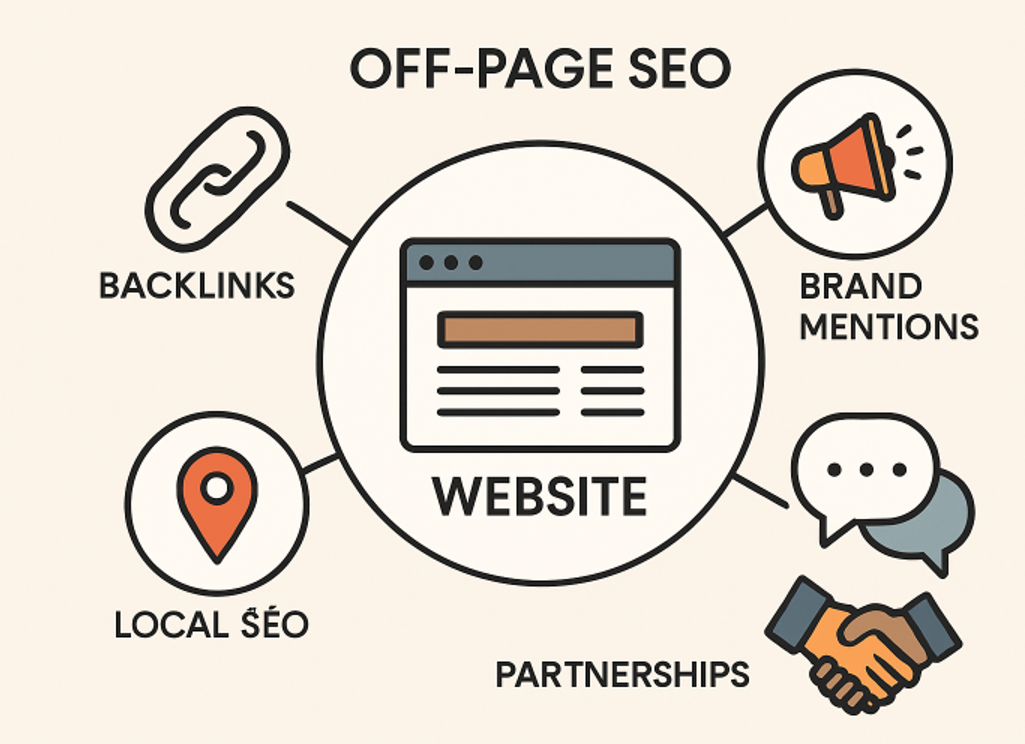Comprehensive SEO Checklist: Integrating Off-Page SEO into Your Strategy
Understanding Off-Page SEO: A Quick Overview
Off-page SEO refers to all optimization activities that occur outside your own website, aiming to improve search engine rankings and increase organic visibility. While on-page SEO focuses on optimizing content and HTML source code, off-page SEO enhances your site’s reputation and authority through external signals such as backlinks, brand mentions, and social engagement.
Effective off page SEO services are vital for maintaining a competitive edge in today’s search landscape. Search engines increasingly consider external factors when determining site credibility and relevance. Building a multifaceted off-page strategy drives higher rankings and establishes lasting trust among users and search engines.
One of the primary distinctions between on-page and off-page SEO lies in the elements each controls. On-page SEO directly manages content, title tags, meta information, and structured data on your website, while off-page SEO centers on building external trust, authority, and relevance through third-party validation.
Link Building Strategies That Drive Results
Acquiring high-quality backlinks remains a pillar of effective off-page SEO. Prioritize strategies that foster natural and contextual links from established, relevant sources within your industry. Focus on creating link-worthy assets, such as original research, comprehensive guides, or innovative tools, encouraging authoritative sites to reference your work. Outreach to reputable bloggers, digital publications, and industry contacts can spark mutually beneficial relationships.
When assessing backlink value, the authority and topical relevance of your linking sites are fundamental for search engines. Links from respected industry resources weigh significantly more than those from unrelated or questionable sites.
Growing Authority Through Brand Mentions
Not all valuable off-page signals are links. Unlinked brand mentions (occurrences of your brand name on third-party websites) can boost your trustworthiness and authority in the eyes of both users and search engines. Google’s algorithms are increasingly adept at recognizing these digital references, attributing value even without a direct link.
Tracking brand mentions is essential for assessing your brand’s footprint and prioritizing potential link reclamation opportunities. Tools can help monitor online conversations and identify areas where you can encourage a link addition. Real-world examples, such as brands leveraging successful PR campaigns or social movements, show how increasing mention volume can amplify credibility and search visibility.
Social Signals and Their Impact
Social media engagement signals—while not direct ranking factors—correlate strongly with increased content visibility and brand awareness. Active participation on platforms like Facebook, Twitter, and LinkedIn can amplify your content’s reach, driving referral traffic and inviting backlinks from a broader audience of influencers, bloggers, and journalists.
Building a vibrant social community starts with regular, authentic interaction and content sharing. Respond to comments, share user-generated content, and participate in trending or relevant conversations to foster engagement.
Local SEO Off-Page Tactics
Local businesses should prioritize citation and directory listings as a core component of off-page SEO. Ensuring your business name, address, and phone number (NAP) are consistently listed across platforms like industry-specific directories boosts your site’s legitimacy and local rankings.
Accurate business information management across the web supports search engine trust and makes it easier for potential customers to find and contact you. In addition, actively seeking customer reviews and responding professionally—whether feedback is positive or negative—signals your commitment to quality and customer satisfaction, both of which influence local pack rankings.
See also: How Modern Crane Tech Is Changing the Construction Game
Other Authority-Building Off-Page Elements
Strategic industry partnerships and collaborations can expand your reach and authority. Joining complementary businesses or industry organizations can provide valuable link and mention opportunities. Consider guest posting on trusted niche blogs, which provide backlinks and establish you as a thought leader within your field.
Participating in forums, Q&A sites, and other niche communities can further broaden your influence. Offering helpful and expert insights can drive referral traffic, reinforce topical authority, and encourage organic link acquisition from engaged audiences.
Off-Page SEO Metrics to Track
Measuring the impact of your off-page SEO efforts is essential for refining your strategy. Monitor domain authority, backlink quality, and anchor text diversity to ensure a strong and natural link profile. Track referral traffic from external sources and assess growth in branded search volume to understand how your visibility is evolving.
Social signals, such as shares, mentions, and engagement rates, are valuable supplementary metrics. Utilize robust tools to gather, visualize, and analyze performance data, allowing you to adjust tactics responsively.
Creating An Actionable Off-Page SEO Checklist
- Assess your backlink profile to pinpoint strengths, weaknesses, and outreach needs.
- Set up comprehensive brand mention and review monitoring for proactive reputation management.
- Develop a targeted link acquisition plan focused on industry-relevant, high-authority sources.
- To maximize visibility, establish a consistent social media, content distribution, and syndication calendar.
- Review performance metrics monthly, making data-driven adjustments to refine and improve your off-page SEO strategy.
Final Thoughts
Off-page SEO is more than link-building—it’s about shaping how the online world perceives your brand. Businesses can achieve long-term visibility and credibility by fostering authority through high-quality backlinks, meaningful brand mentions, active social engagement, and strategic partnerships. Consistent tracking and optimization ensure your efforts improve rankings, create stronger connections with your audience, and drive real business growth.






